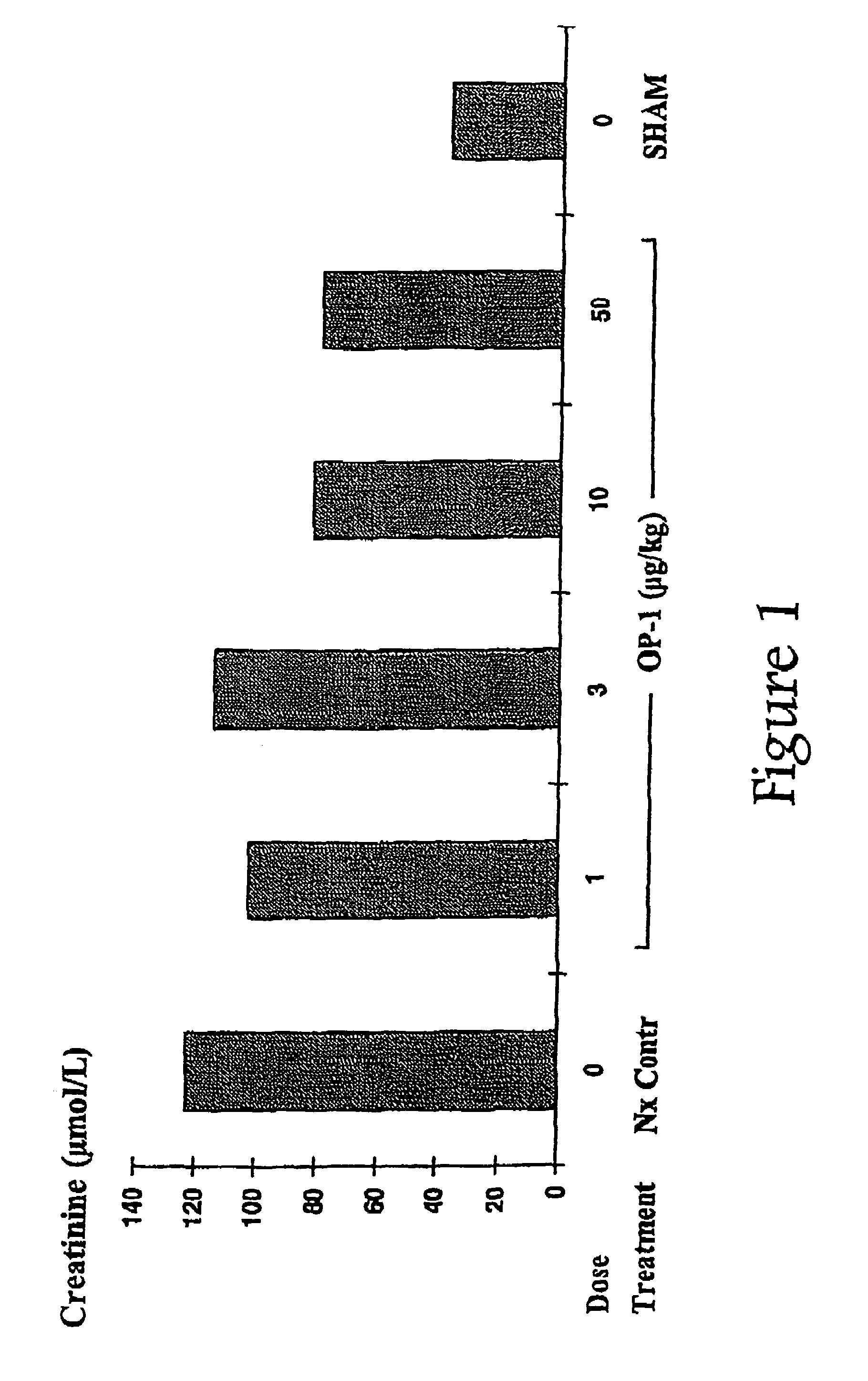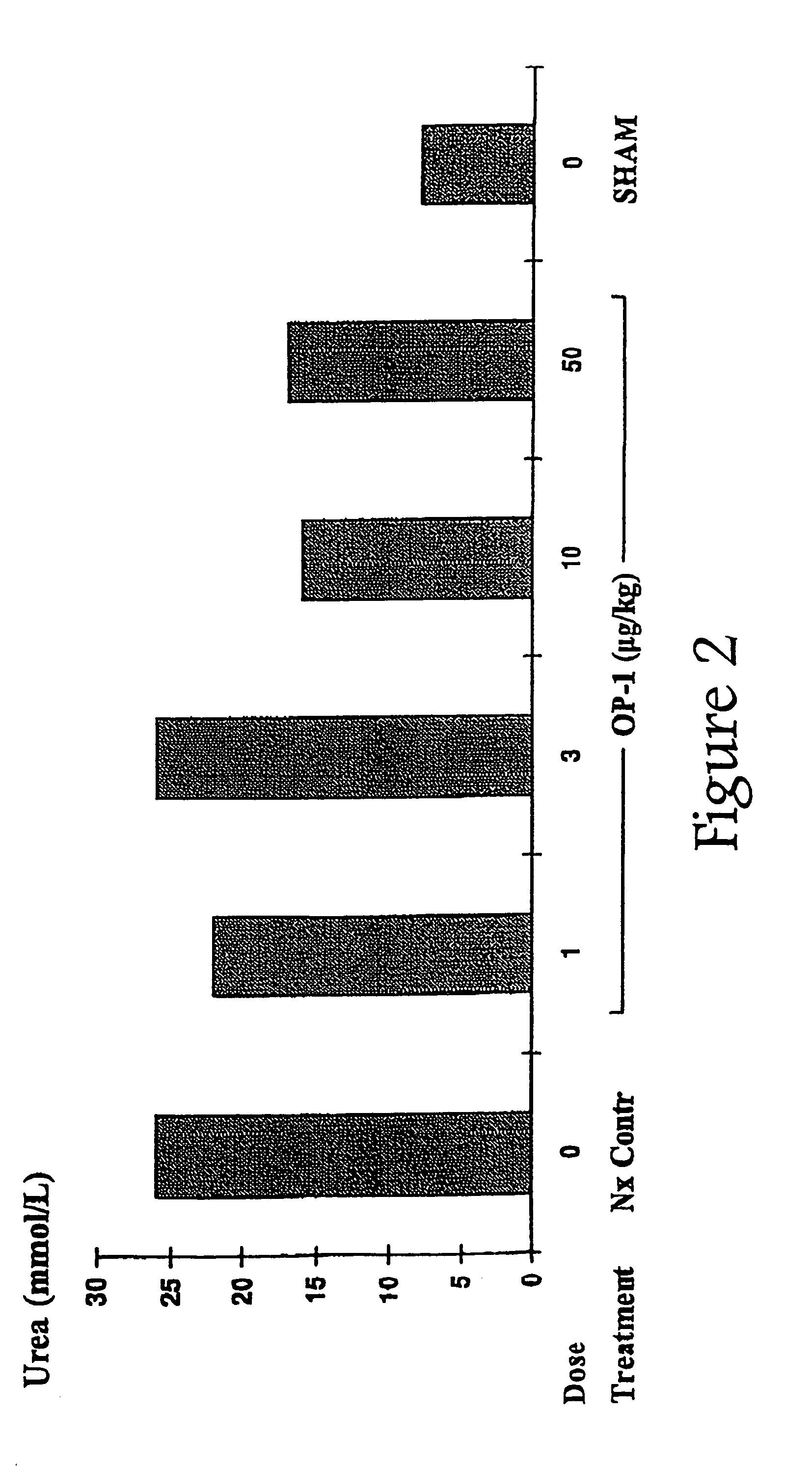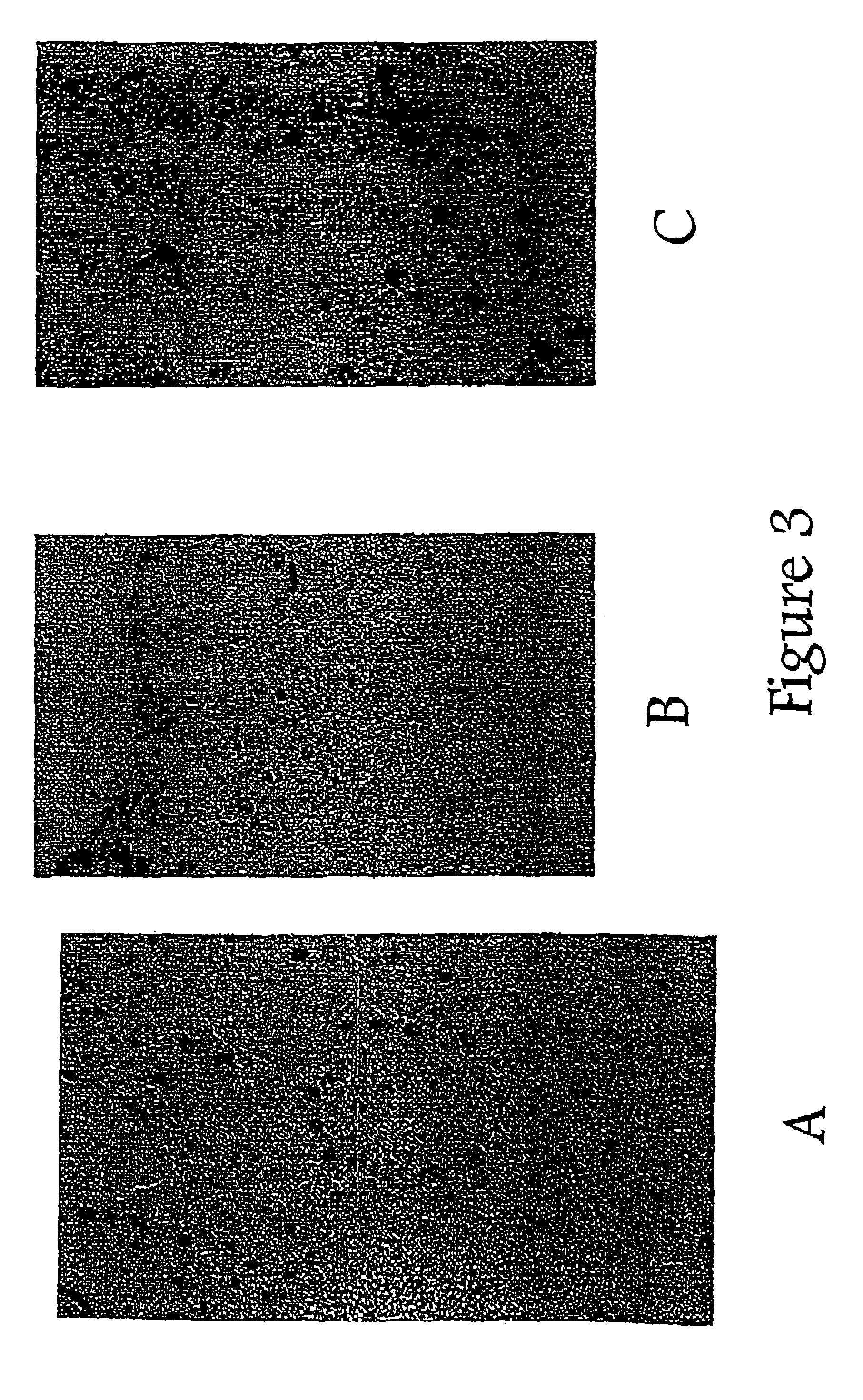Therapies for chronic renal failure
a technology for chronic renal failure and treatment, applied in the field of renal disease treatment methods, can solve the problems of chronic renal failure, debilitating and life-threatening disease, insufficient treatment, etc., and achieve the effect of reducing the necessary frequency of chronic renal dialysis, preventing, inhibiting and preventing or delaying the need for chronic dialysis
- Summary
- Abstract
- Description
- Claims
- Application Information
AI Technical Summary
Benefits of technology
Problems solved by technology
Method used
Image
Examples
examples
Rat Remnant Kidney Model
[0070]A rat partial (⅚) nephrectomy or rat remnant kidney model (RRKM) model was employed essentially as described (Vukicevic, et al. (1987) J. Bone Mineral Res. 2: 533). Male rats (2-3 months old, weighing about 150-200 g) were subjected to unilateral nephrectomy (either left or right kidney). After approximately one week, ⅔ of the remaining kidney was surgically removed. Immediately following surgery, plasma creatinine and BUN levels rise dramatically due to the loss of renal mass and function. Over the next several weeks of this “acute” failure phase, plasma creatinine and BUN levels of surviving animals decline somewhat toward normal values but remain elevated. Renal function then appears to remain relatively constant or stable for a period of variable duration. After this point, the animal enter a period of chronic renal failure in which there is an essentially linear decline in renal function ending in death.
[0071]As surgical controls, additional rats w...
PUM
| Property | Measurement | Unit |
|---|---|---|
| diameter | aaaaa | aaaaa |
| diameter | aaaaa | aaaaa |
| molecular weights | aaaaa | aaaaa |
Abstract
Description
Claims
Application Information
 Login to View More
Login to View More - R&D
- Intellectual Property
- Life Sciences
- Materials
- Tech Scout
- Unparalleled Data Quality
- Higher Quality Content
- 60% Fewer Hallucinations
Browse by: Latest US Patents, China's latest patents, Technical Efficacy Thesaurus, Application Domain, Technology Topic, Popular Technical Reports.
© 2025 PatSnap. All rights reserved.Legal|Privacy policy|Modern Slavery Act Transparency Statement|Sitemap|About US| Contact US: help@patsnap.com



